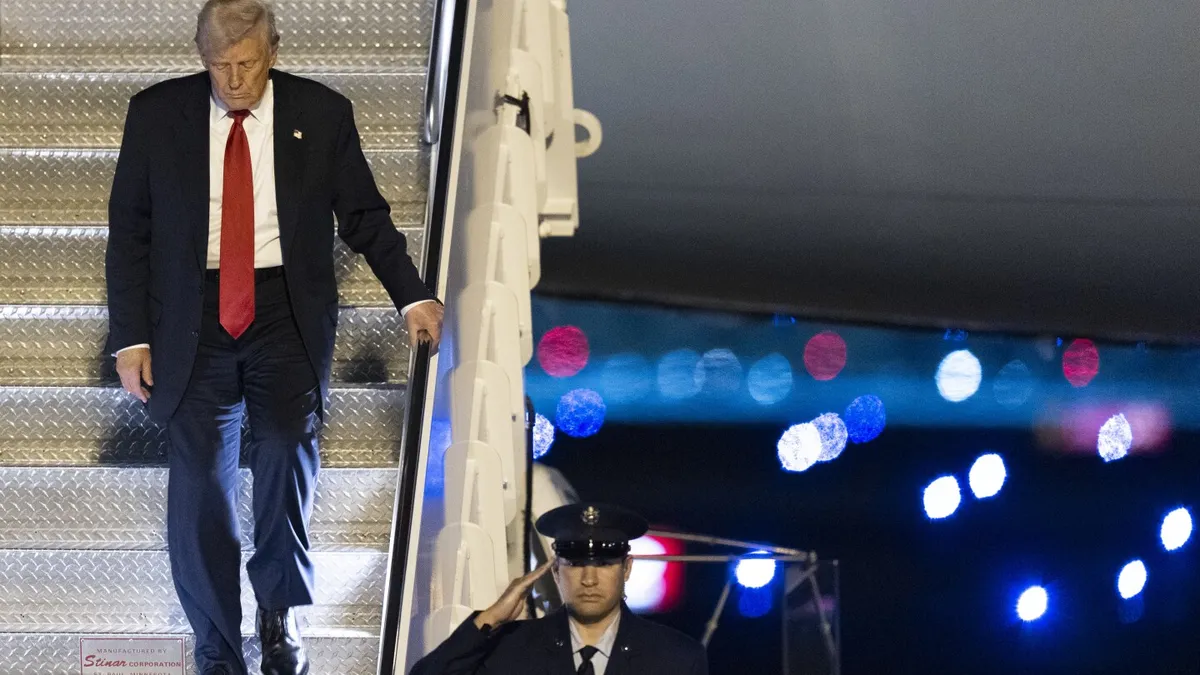
In a significant legal victory for transgender rights, a federal judge has halted the enforcement of President Donald Trump’s executive order that aimed to exclude transgender individuals from serving in the military. This ruling comes from U.S. District Judge Ana Reyes in Washington, D.C., who determined that Trump's order likely infringes upon the constitutional rights of transgender troops. This decision marks another setback for Trump's administration, which has faced numerous legal challenges regarding its policies.
On Tuesday, Judge Reyes became the second judge to issue a ruling against the Trump administration within hours, following a rare public rebuke from Chief Justice John Roberts regarding Trump's calls for the impeachment of another judge. Reyes, nominated by President Joe Biden, has temporarily delayed her ruling until Friday morning to allow the administration time to appeal. In her opinion, she acknowledged the potential for heated public debate, stating, “In a healthy democracy, both are positive outcomes.” She emphasized the importance of recognizing the service of all military personnel, saying, “Every person who has answered the call to serve deserves our gratitude and respect.”
Among the plaintiffs challenging Trump's order is Army Reserves 2nd Lt. Nicolas Talbott, one of the 14 transgender active-duty servicemembers involved in the lawsuit. Talbott expressed his relief at the ruling, stating, “This is such a sigh of relief. This is all I’ve ever wanted to do. This is my dream job, and I finally have it. And I was so terrified that I was about to lose it.” His sentiments reflect the anxiety many transgender individuals face regarding their military careers under the controversial executive order.
The White House has not yet commented on the ruling. However, Trump’s deputy chief of staff, Stephen Miller, criticized the decision on social media, arguing that district court judges are overstepping their bounds in military affairs. The judge’s ruling included a preliminary injunction, as requested by attorneys representing not only the plaintiffs but also others seeking to join the military.
On January 27, Trump signed an executive order asserting that the sexual identity of transgender service members “conflicts with a soldier’s commitment to an honorable, truthful, and disciplined lifestyle.” The order claimed that transgender individuals pose a threat to military readiness. Subsequently, Defense Secretary Pete Hegseth implemented a policy that disqualified individuals diagnosed with gender dysphoria from military service. Gender dysphoria is a medical condition characterized by significant distress due to a mismatch between a person’s assigned gender and their gender identity.
In the lawsuit, the plaintiffs argue that Trump’s order violates the equal protection rights guaranteed under the Fifth Amendment. Government lawyers counter that military officials possess broad discretion in assigning and deploying servicemembers without interference from the judiciary. Judge Reyes acknowledged the complexities of her decision, stating, “Judicial overreach is no less pernicious than executive overreach.” Nevertheless, she affirmed the court's responsibility to uphold the equal protection rights that the military is sworn to defend.
While thousands of transgender individuals serve in the military, they constitute less than 1% of the total active-duty force. In 2016, the Defense Department allowed transgender individuals to serve openly. However, during Trump’s presidency, a directive was issued to ban transgender service members, which the Supreme Court allowed to take effect. President Biden reversed this ban upon taking office, reinstating protections for transgender troops.
The plaintiffs include a diverse group of military personnel, including an Army Reserves platoon leader from Pennsylvania and a Bronze Star-awarded Army major who served in Afghanistan. Their attorneys argue that the ban undermines the contributions of transgender servicemembers and jeopardizes military cohesion. “The cruel irony is that thousands of transgender servicemembers have sacrificed—some risking their lives—to ensure for others the very equal protection rights the military ban seeks to deny them,” Reyes noted in her ruling.
As the legal battle continues over Trump's executive order, attorneys representing transgender servicemembers assert that the order reflects a broader pattern of discrimination against transgender individuals by the Trump administration. They highlight that the fight for equality extends beyond the military and affects various sectors, including healthcare, education, and sports. Talbott, who enlisted as an openly transgender individual, now looks forward to focusing on his mission, stating, “Now I can go back to focusing on what’s really important, which is the mission.”